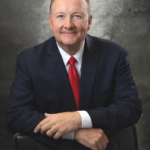Aftermath – The Psychological Recovery Process Following Mass Shootings

Aftermath – The Psychological Recovery Process Following Mass Shootings

Presented By
-
 Dwight Bain, NCC, LMHCMore Info
Dwight Bain, NCC, LMHCMore Info
Brought to You By
Dates and Times
-
-In-Person
Location
-
Southern Hemisphere I1200 Epcot Resorts Blvd
Lake Buena Vista, FL 32830
Traumatic events like school shootings continue to rise and create hopelessness. The spike in community trauma has the potential to create secondary traumatic stress leading to serious mental health conditions like PTSD or ASD. Cleveland Clinic reports 6%-33% of those who live through a traumatic event will develop Acute Stress Disorder in the aftermath of the crisis.. These symptoms can cross all age groups after a community trauma, leaving many counselors overwhelmed about what how to prevent worsening psychological symptoms. What should a counselor do or say to help, especially in the immediate aftermath following a mass shooting?
Many practitioners are not trained in how to spot Acute Stress Disorder (ASD) which is a common psychological stress response after trauma. Symptoms can appear within three to thirty days of living through a traumatic event. Without early intervention some will experience self-destructive behavior since every day counts in the recovery process. Sadly, those who ignore these symptoms may experience worsening of their own mental health in the first few days and weeks post-crisis event. Symptoms in the aftermath of community crisis may include-anxiety, intense fear, or helplessness and difficulty concentrating; recurring traumatic memories or hypervigilance; persistent difficulty feeling positive emotions like happiness or love; chronic sleep loss; feeling numb; avoiding situations, places, or other reminders of the traumatic event, which is challenging for school or workplace mass shootings since students and employees often return to the same location where they experienced trauma. There are stages of rapid psychological intervention in the aftermath of a community crisis. Are you skilled at identifying the stages and creating a psychological response map for those directly exposed to traumatic stress so your community can heal?
- • Counselor
- • Marriage & Family Therapist
- • Nurses
- • Physicians
- • Social Worker
- • Substance Use Disorder Professionals
- • Psychologist
At the end of this course, participants will be able to:
-
Compare and list out the differences in big “T” and little “t” trauma response in the aftermath of mass shootings or community crisis.
-
Explain how to reduce the risk of developing serious conditions like ASD after a mass shooting or community crisis.
-
Identify and describe at least three red flags and warning signs for students, educators, employees and first-responders affected by traumatic stress and how to create safe interventions.
-
Identify the difference in psychological risk between traumatic stress and secondary traumatic stress in the weeks following a community crisis.
-
Abba-Aji, M., Moreland, A., Abdalla, S. M., Rancher, C., Galea, S., Davies, F., & Kilpatrick, D. G. (2024). Prevalence and risk factors of depression and posttraumatic stress disorder after a mass shooting. JAMA Network Open, 7(3), e242739. https://doi.org/10.1001/jamanetworkopen.2024.2739
-
Acosta, J. D., & Jaycox, L. H. (2019, April 4). Preventing suicide: Treat mass shooting trauma beyond initial tragedy [Review of Preventing suicide: Treat mass shooting trauma beyond initial tragedy]. RAND. https://www.rand.org/pubs/commentary/2019/04/preventing-suicide-treat-mass-shooting-trauma-beyond.html
-
Crews, G. A. (2020). Handbook of research on mass shootings and multiple victim violence. Information Science Reference.
-
Cowan, R. G., Blum, C., Szirony, G., & Cicchetti, R. J. (2020). Supporting survivors of public mass shootings. Journal of Social, Behavioral, and Health Sciences, 14(1). https://doi.org/10.5590/jsbhs.2020.14.1.12
-
EMR-ISAC. (n.d.). EMR-ISAC InfoGram June 8 – Study examines national data on first responder suicides; NWCG’s wildland firefighter training modernization project. https://content.govdelivery.com/accounts/USDHSFACIR/bulletins/35f2855
-
Gregory, S. D., & Park, J. S. (2022). Mass school shootings: Review of mental health recommendations. School Mental Health, 14. https://doi.org/10.1007/s12310-021-09489-9
-
McLaughlin, K., & Kar, J. A. (2019). Aftermath of the Parkland shooting: A case report of post-traumatic stress disorder in an adolescent survivor. Cureus, 11(11). https://doi.org/10.7759/cureus.6146
-
Montano, J. (2021, April 27). The impact of mass shootings on survivors | Danielle Rousseau. https://sites.bu.edu/daniellerousseau/2021/04/27/the-impact-of-mass-shootings-on-survivors/
-
Novotney, A. (2018, September). What happens to the survivors? American Psychological Association Monitor. https://www.apa.org/monitor/2018/09/survivors
-
Peterson, J., Densley, J., Hauf, M., & Moldenhauer, J. (2024). Annual review of clinical psychology: Epidemiology of mass shootings in the United States. Annual Review of Clinical Psychology. https://doi.org/10.1146/annurev-clinpsy-081122-
-
SAMHSA. (2017). Mass violence and behavioral health [Review of Mass violence and behavioral health]. Disaster Technical Assistance Center Supplemental Research Bulletin. https://www.samhsa.gov/sites/default/files/dtac/srb-mass-violence-behavioral-health.pdf
-
Schildkraut, J., Sokolowski, E. S., & Nicoletti, J. (2021). The survivor network: The role of shared experiences in mass shootings recovery. Victims & Offenders, 16(1), 20–49. https://doi.org/10.1080/15564886.2020.1764426
-
Schildkraut, J., Sokolowski, E. S., & Nicoletti, J. (2020). The survivor network: The role of shared experiences in mass shootings recovery. Victims & Offenders, 16(1), 1–30. https://doi.org/10.1080/15564886.2020.1764426
-
Scott, P. S. (2021). The minds of mass killers. Google Books. https://books.google.com/books?hl=en&lr=&id=c_hPEAAAQBAJ&oi=fnd&pg=PP1&dq=related:TE59g_4_XcIJ:scholar.google.com/&ots=PhQHo0XSwj&sig=-SKpDF4ZRYn2jZYSO0_GzaSg4Ec#v=onepage&q&f=false
-
Wilson, L. C. (2017). The Wiley handbook of the psychology of mass shootings. Wiley. https://www.wiley.com/en-us/The+Wiley+Handbook+of+the+Psychology+of+Mass+Shootings-p-9781119047933
TPN.health has been approved by NBCC as an Approved Continuing Education Provider, ACEP No. 7267. Programs that do not qualify for NBCC credit are clearly identified. TPN.health is solely responsible for all aspects of the programs.
Trusted Provider Network, LLC is recognized by the New York State Education Department’s State Board for Mental Health Practitioners as an approved provider of continuing education for licensed mental health counselors. #MHC-0220.
TPN.health is approved by the California Association of Marriage and Family Therapists (Provider #1000101) to sponsor continuing education for LPCCs. TPN.health maintains responsibility for this program/course and its content. Course meets the qualifications for 1 hours of continuing education credit for LPCCs as required by the California Board of Behavioral Sciences.
TPN.health is approved by the California Association of Marriage and Family Therapists (Provider #1000101) to sponsor continuing education for LMFTs. TPN.health maintains responsibility for this program/course and its content. Course meets the qualifications for 1 hours of continuing education credit for LMFTs as required by the California Board of Behavioral Sciences.
Trusted Provider Network, LLC is recognized by the New York State Education Department’s State Board for Mental Health Practitioners as an approved provider of continuing education for licensed marriage and family therapists #MFT-0097.
In support of improving patient care, this activity has been planned and implemented by Amedco LLC and TPN.health. Amedco LLC is jointly accredited by the Accreditation Council for Continuing Medical Education (ACCME), the Accreditation Council for Pharmacy Education (ACPE), and the American Nurses Credentialing Center (ANCC), to provide continuing education for the healthcare team. Amedco LLC designates this activity for a maximum of 1 ANCC contact hours.
In support of improving patient care, this activity has been planned and implemented by Amedco LLC and TPN.health. Amedco LLC is jointly accredited by the Accreditation Council for Continuing Medical Education (ACCME), the Accreditation Council for Pharmacy Education (ACPE), and the American Nurses Credentialing Center (ANCC), to provide continuing education for the healthcare team. Professions in scope for this activity are listed below. Amedco Joint Accreditation Provider Number: 4008163. Amedco LLC designates this live activity for a maximum of 1 AMA PRA Category 1 Credits™ for physicians. Physicians should claim only the credit commensurate with the extent of their participation in the activity.
Trusted Provider Network, LLC is recognized by the New York State Education Department’s State Board for Social Work as an approved provider of continuing education for licensed social workers #SW-0654.
TPN.health is approved by the California Association of Marriage and Family Therapists (Provider #1000101) to sponsor continuing education for LCSWs. TPN.health maintains responsibility for this program/course and its content. Course meets the qualifications for 1 hours of continuing education credit for LCSWs as required by the California Board of Behavioral Sciences.
TPN.health, #1766, is approved to offer social work continuing education by the Association of Social Work Boards (ASWB) Approved Continuing Education (ACE) program. Organizations, not individual courses, are approved as ACE providers. State and provincial regulatory boards have the final authority to determine whether an individual course may be accepted for continuing education credit. TPN.health maintains responsibility for this course. ACE provider approval period: 03/31/2022 – 03/31/2025. Social workers completing this course receive 1 Clinical continuing education credits. ASWB ACE Credit is not available in NY and NJ.
This course has been approved by TPN.health, as a NAADAC Approved Education Provider, for educational credits. NAADAC Provider #198061, TPN.health is responsible for all aspects of the programming.This course has been approved by TPN.health, as a NAADAC Approved Education Provider, for educational credits. NAADAC Provider #198061, TPN.health is responsible for all aspects of the programing. Counselor Skill Group: Counseling Services
TPN.health is approved by the California Association of Marriage and Family Therapists (Provider #1000101) to sponsor continuing education for LEPs. TPN.health maintains responsibility for this program/course and its content. Course meets the qualifications for 1 hours of continuing education credit for LEPs as required by the California Board of Behavioral Sciences.
Trusted Provider Network is approved by the American Psychological Association to sponsor continuing education for psychologists. Trusted Provider Network maintains responsibility for this program and its content.
Trusted Provider Network, LLC is recognized by the New York State Education Department’s State Board for Psychology as an approved provider of continuing education for licensed psychologists #PSY-0125.
-
Workshop Begins
-
Workshop Ends

